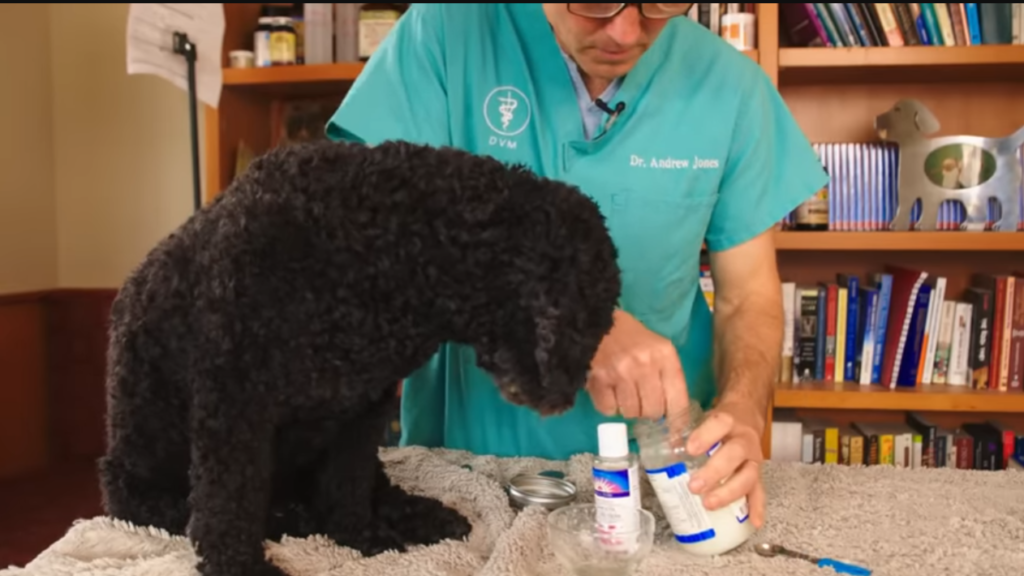Dog licked castor oil – A Natural Remedy for Aches and Pains
Castor oil is a natural remedy that can soothe muscle and joint aches for dogs. This product can help with minor injuries, arthritis, and post-surgery healing. However, it’s important to monitor the amount ingested and consult with a vet before using it as a supplement.
Dogs have an amazing instinctual ability to self-medicate with plants and oils when they don’t feel well. Their keen sense of smell allows them to detect substances in their environment that may ease discomfort. Castor oil is non-toxic to dogs in small amounts and provides several benefits that they notice. Explore why castor oil is attractive for dogs and how to use it safely for recovery.

Relief from Minor Injuries and Sprains
Dogs may lick castor oil if they have a minor cut, scrape, bruise, or sprain that is irritating. Castor oil contains ricinoleic acid, which has anti-inflammatory properties comparable to ibuprofen. These properties can help to reduce pain, and swelling, and promote quicker healing of minor injuries.
This makes it attractive for self-medicating. You can also apply a small amount topically to recent wounds, muscle strains, or joints that seem sore.
Castor oil can protect and clean injuries by forming a barrier. However, be careful not to leave it within reach of your dog as licking excess amounts could cause an upset stomach. Start with a pea-sized amount and see how your dog responds.
Arthritis and Sore Muscles Relief
Aging dogs or those recovering from exercise or old injuries may experience soreness, which can be troublesome. Castor oil contains ricinoleic acid which reduces inflammation at the source. When licked or massaged into problem areas, it penetrates deep to relieve pain.
Many dog owners report castor oil giving their older pets renewed mobility and comfort after only a few applications. You can gently rub a small amount into any joints or muscles that appear swollen or tender. It’s a natural analgesic option worth trying before prescription medications. Always consult your vet first if symptoms persist or worsen.
Post-Surgery Healing Support
Castor oil can speed up a dog’s recovery after a minor surgery or stitches. It has antibacterial and anti-inflammatory properties that protect the surgery sites, and reduce swelling and discomfort.
Gently massaging around incisions helps with blood flow and tissue growth. Consult your vet regarding the appropriate time to start castor oil therapy based on your dog’s healing progress. Always watch for any signs of irritation and discontinue use if wounds appear sensitive.
Internal Organ Support
Some holistic veterinarians believe that castor oil can help in detoxification and liver support.
Experts claim that ricinoleic acid present in the oil stimulates bile production and promotes regular bowel movements. This helps in removing toxins from the intestines and bloodstream.d bloodstream.d bloodstream.
Traditionally, people have been using castor oil as a natural remedy for dogs who suffer from occasional constipation, lactose intolerance, or minor digestive disturbances. Start with no more than 1 teaspoon added to food unless otherwise advised by your vet. Too much at once could lead to diarrhea instead.
Safety First
Pet owners need to take certain precautions when giving castor oil to their dogs. It’s usually considered safe, but it’s always better to prevent potential issues by taking proactive measures. Make sure to monitor how much your dog ingests to avoid stomach upset. Keep bottles safely capped and out of reach if not in use.
Watch for signs of allergies in your dog like itching, hives, or lethargy when introducing new things. These symptoms may indicate that your dog is having an adverse reaction. Consult your vet regarding new therapies, especially for pre-existing medical conditions or prescription medications that could interact.
Just a quick reminder: castor oil can attract dogs, but it can also help with minor aches, promote wellness, and aid in recovery. Always put your dog’s needs first – castor oil is worth considering as a supplement under veterinary supervision.